Making the News: Library Advocacy and Local Media
Speakers: Shawnda Hines (moderator), Christi Buker, TyLisa Johnson, John O'Brien
Christi Buker (Pennsylvania Library Association):
- Use traditional advocacy and social media
- Make sure their legislative community is fully engaged
- Focused your limited time and resources
- The Pennsylvania Library Association (PLA) have created handout that provide information on the good, bad, and what’s possible (the ask)
- In 2018, PLA focused on awareness
- In 2019, PLA focused on positive revenues within the state
- Suggested that you get your county to acknowledge National Library Week
- Do media training
TyLisa Johnson (journalist):
- Use data to supplement stories on people. Marry anecdotal stories with data.
- Educate your journalists about the library
John O’Brien, (Pennsylvania State government staff):
- Revenues have not recovered from the Great Recession
- There is a lot competing with libraries in the budget
- Libraries must prove their worth
- What is your return in investment?
Wrap-Up
 Like other associations, American Library Association is a period of change. Our reliance on our professional associations is different than it was, partially due to the Internet (for training and information) and the economy. The fact that our vendors (sponsors) have consolidated hasn't helped either. This all has placed financial pressure on ALA.
Like other associations, American Library Association is a period of change. Our reliance on our professional associations is different than it was, partially due to the Internet (for training and information) and the economy. The fact that our vendors (sponsors) have consolidated hasn't helped either. This all has placed financial pressure on ALA.I have not tracked information on how ALA might change in the future. My impression is that is still being worked through. However, ALA has announced that it will be changing its Midwinter event in the future. So this may have been the second to last one. According to information posted to Twitter, total attendance for this Midwinter was 8,099 (2020). This is compared to 9,211 in 2019 (Seattle) and 8,036 in 2018 (Denver). These registration numbers are similar to the Midwinter conferences in the early 1990s.
ALA still does important work for our libraries across the U.S. and in other countries. ALA accredits our MSLIS programs. ALA advocates for our libraries and sets standards. No matter what happens in the months to come, ALA will still be an important force.
EveryLibrary Institute
I ended the conference by attending a meeting of several board members for EveryLibrary Institute (ELI). (Yes, I'm on their board.) ELI conducts research on libraries, which libraries can then use to help discuss their value with their constituents, political representative, and those who vote on library budgets. ELI's available research includes a Library Funding Map, information on U.S. Library Funding Change Rate, and the Crime and Library Report. They also push out relevant information produced by other organizations. If you are interested in understanding or articulating the value of libraries, check out EveryLibrary Institute.ELI also does training for library staff to increase their political literacy skills. If you're approaching a vote on your library's budget, you might want to top-off your political literacy skills through a workshop or webinar.
EveryLibrary Institute is interested in understanding why people vote for or against library budgets. You might think that you know exactly which way people lean politically and how that impacts their vote on a library's budget, but it is much more complicated than that. We know that it would help every library vote across the U.S. and so one of things we discussed is how to fund and support this research. If you know of an organization - or group of people - that would be interested in funding this work, please contact John Chrastka and Patrick Sweeney.



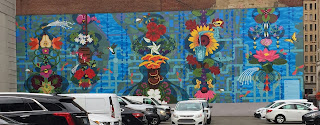


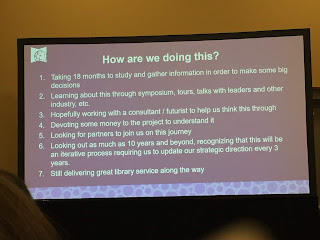
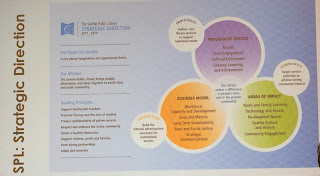



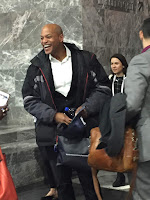
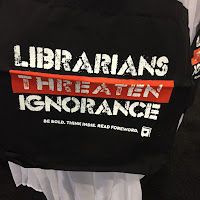


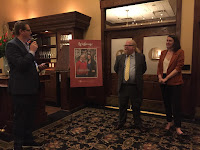

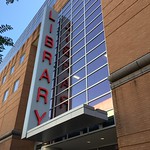 First, I am now the president of the
First, I am now the president of the